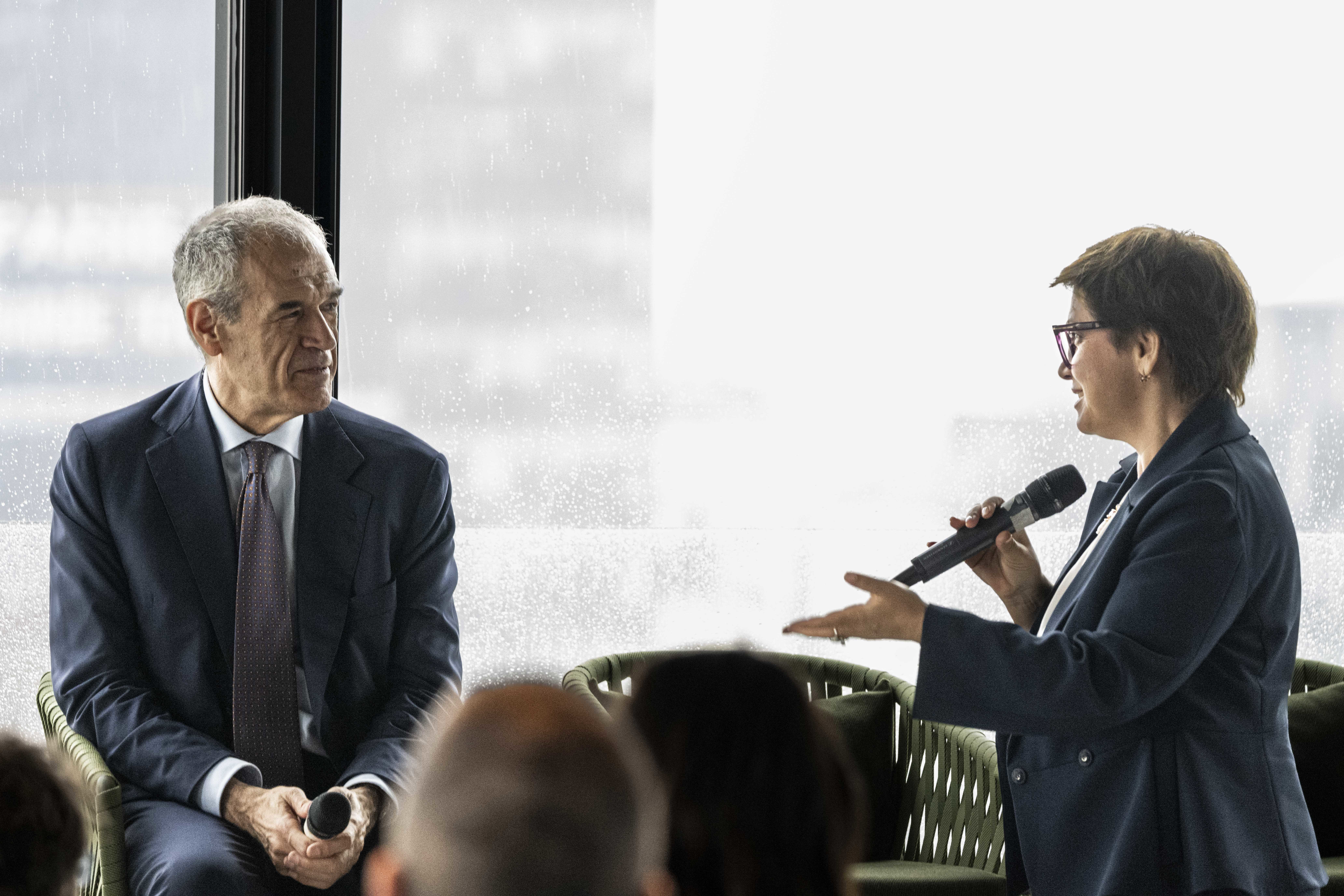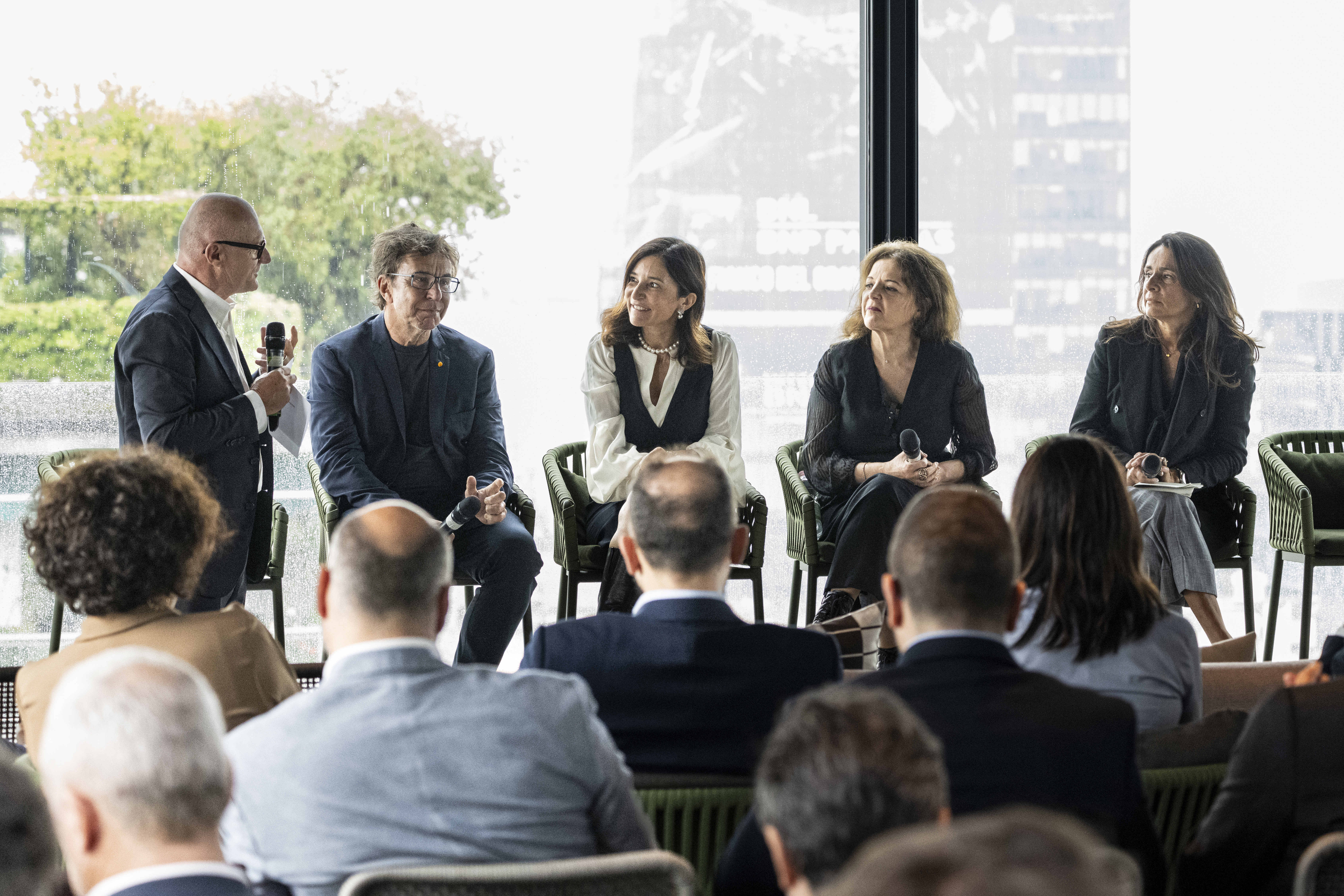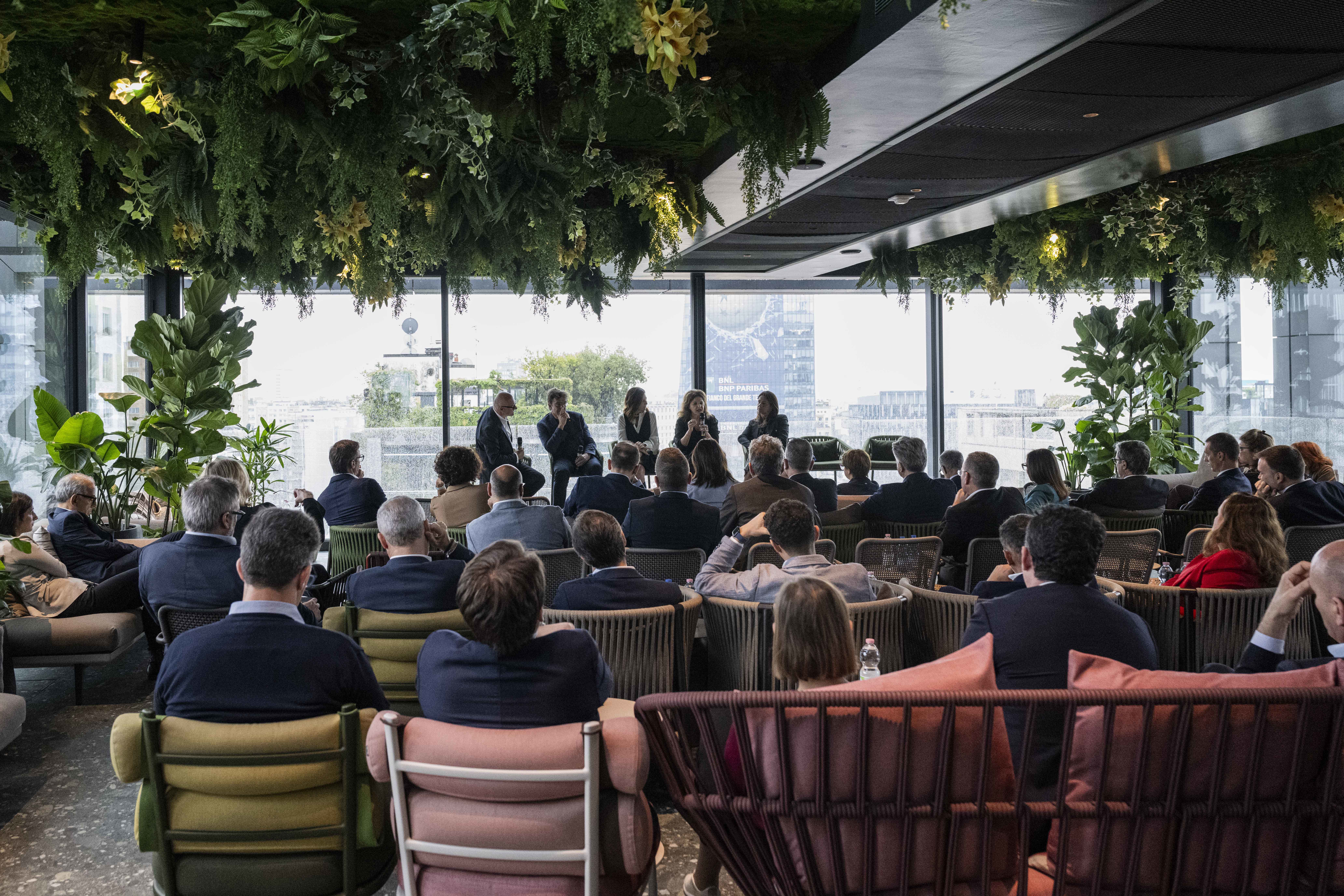Will Artificial Intelligence boost productivity?
Insights from Carlo Cottarelli and Industry Leaders at Assist Digital's event in Milan, May 15, 2024.

The remarkable capabilities demonstrated by Generative AI evoke high expectations, albeit with some concerns. However, over the past 25 years, the widespread adoption of ICT has not consistently translated into productivity growth at the levels seen in the last century (in the USA, an annual rate of 0.4% compared to the 2% average of the previous 50 years). This disparity signals that ICT has not yet fully realized its potential. Will the same hold for AI? What measures can we take to ensure that AI becomes a driver of economic development and boosts productivity and competitiveness for businesses?
These questions were tackled by Professor Carlo Cottarelli, the keynote speaker at the event organized by Assist Digital held yesterday morning at the Hyatt Hotel in Milan. The gathering attracted over 80 executives from some of the most prominent companies in our country's industrial landscape.
A panel of CEOs participated in the discussion, including Francesca Gabrielli, CEO of Assist Digital; Mirja Cartia d'Asero, CEO of Gruppo 24 ORE; Monica Iacono, CEO of ENGIE Italia; Davide Passero, CEO of Alleanza Assicurazioni; and Gabriella Vacca, CTO for Italy and Director of the Enterprise Technology Group at SKY.

Leaders from various industrial sectors explored the potential of Artificial Intelligence and its application within the corporate context, moving beyond mere enthusiasm or alarmism. The executives highlighted the significant opportunities that AI technologies can unlock, particularly for data-driven enterprises. They also addressed open issues requiring proper governance, such as security, copyright protection, ethical concerns, and human oversight. However, caution regarding these matters should not impede progress. Technological evolution is advancing, and embracing an open approach to AI integration is crucial for gaining a competitive edge.

Hence, companies must adapt their ecosystems, align technological innovation with human experiences and capabilities, foster workforce evolution and personnel reskilling, facilitate change management processes and digital adoption, and engage with educational institutions and modern university training programs. While the adoption of new operational models to enhance productivity performance is necessary, equally vital is educating customers about embracing new technologies.
The discussion underscored how AI can propel business development while emphasizing the indispensable role of human oversight in supervising technological work, interpreting data, and making critical decisions. Therefore, it remains essential for business leaders to adopt a strategic approach to change, implementing necessary actions for process transformation, skill development, and corporate culture evolution.
Carlo Cottarelli Bio
Carlo Cottarelli, an Italian economist, columnist, and politician, boasts a rich career spanning various prestigious roles. He served as the Director of the Fiscal Affairs Department at the International Monetary Fund (IMF), where, since 1998, he also held positions within the European Department, the Monetary and Capital Markets Department, and the Strategy, Policy, and Review Department, of which he was also Vice President. Additionally, he was responsible for the development and publication of the Fiscal Monitor, one of the IMF's flagship publications. Cottarelli has authored numerous essays on fiscal and monetary policies and institutions, as well as books on inflation, monetary policy, and exchange rates. Before his tenure at the IMF, he worked in the research department of the Bank of Italy, focusing on monetary policy and the financial sector, as well as at ENI.
He holds a degree in Economics and Banking from the University of Siena and completed his postgraduate studies with a Master's degree in Economics from the London School of Economics. Since October 30, 2017, Cottarelli has been the Director of the Observatory on Italian Public Accounts at the Catholic University of Milan. Since September 2017, he has also served as a visiting professor at Bocconi University in Milan, where he teaches a course on Fiscal Macroeconomics.